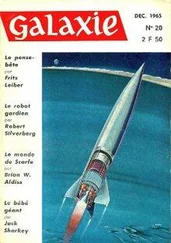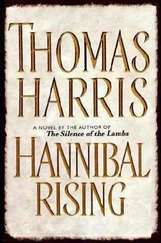She gripped his upper arm and pulled him down the hall to the bathroom. The light was over the mirror and she had to stand on tiptoe to reach it. She gave him a washcloth, wet and cold.
"Take off your nightshirt and wipe yourself off."
Smell of adhesive tape and the bright sewing scissors clicking. She snipped out a butterfly of tape, stood him on the toilet lid and closed the cut over his eye.
"Now," she said. She held the sewing scissors under his round belly and he felt cold down there.
"Look," she said. She grabbed the back of his head and bent him over to see his little penis lying across the bottom blade of the open scissors. She closed the scissors until they began to pinch him.
"Do you want me to cut it off?"
He tried to look up at her, but she gripped his head. He sobbed and spit fell on his stomach.
"Do you?"
"No, Aayma. No, Aayma."
"I pledge you my word, if you ever make your bed dirty again I'll cut it off. Do you understand?"
"Yehn, Aayma."
"You can find the toilet in the dark and you can sit on it like a good boy. You don't have to stand up. Now go back to bed."
# # #
At two A.M. the wind rose, gusting warm out of the southeast, clacking together the branches of the dead apple trees, rustling the leaves of the live ones. The wind drove warm rain against the side of the house where Francis Dolarhyde, forty-two years old, lay sleeping.
He lay on his side sucking his thumb, his hair damp and flat on his forehead and his neck.
Now he awakes. He listens to his breathing in the dark and the tiny clicks of his blinking eyes. His fingers smell faintly of gasoline. His bladder is full.
He feels on the bedside table for the glass containing his teeth. Dolarhyde always puts in his teeth before he rises. Now he walks to the bathroom. He does not turn on the light. He finds the toilet in the dark and sits down on it like a good boy.
The change in Grandmother first became apparent in the winter of 1947, when Francis was eight.
She stopped taking meals in her room with Francis. They moved to the common table in the dining room, where she presided over meals with the elderly residents.
Grandmother had been trained as a girl to be a charming hostess, and now she unpacked and polished her silver bell and put it beside her plate.
Keeping a luncheon table going, pacing the service, managing conversation, batting easy conversational lobs to the strong points of the shy ones, turning the best facets of the bright ones in the light of the other guests' attention is a considerable skill and one now sadly in decline.
Grandmother had been good at it in her time. Her efforts at this table did brighten meals initially for the two or three among the residents who were capable of linear conversation.
Francis sat in the host's chair at the other end of the avenue of nodding heads as Grandmother drew out the recollections of those who could remember. She expressed keen interest in Mrs. Floder's honeymoon trip to Kansas City, went through the yellow fever with Mr. Eaton a number of times, and listened brightly to the random unintelligible sounds of the others.
"Isn't that interesting, Francis?" she said, and rang the bell for the next course. The food was a variety of vegetable and meat mushes, hut she divided it into courses, greatly inconveniencing the kitchen help.
Mishaps at the table were never mentioned. A ring of the bell and a gesture in mid-sentence took care of those who had spilled or gone to sleep or forgotten why they were at the table. Grandmother always kept as large a staff as she could pay.
As Grandmother's general health declined, she lost weight and was able to wear dresses that had long been packed away. Some of them were elegant. In the cast of her features and her hairstyle, she bore a marked resemblance to George Washington on the dollar bill.
Her manners had slipped somewhat by spring. She ruled the table and permitted no interruptions as she told of her girlhood in St. Charles, even revealing personal matters to inspire and edify Francis and the others.
It was true that Grandmother had enjoyed a season as a belle in 1907 and was invited to some of the better balls across the river in St. Louis.
There was an "object lesson" in this for everyone, she said. She looked pointedly at Francis, who crossed his legs beneath the table.
"I came up at a time when little could be done medically to overcome the little accidents of nature," she said. "I had lovely skin and hair and I took full advantage of them. I overcame my teeth with force of personality and bright spirits – so successfully, in fact, that they became my 'beauty spot.' I think you might even call them my 'charming trademark.' I wouldn't have traded them for the world."
She distrusted doctors, she explained at length, but when it became clear that gum problems would cost her her teeth, she sought out one of the most renowned dentists in the Midwest, Dr. Felix Bertl, a Swiss. Dr. BertI's "Swiss teeth" were very popular with a certain class of people, Grandmother said, and he had a remarkable practice.
Opera singers fearing that new shapes in their mouths would affect their tone, actors and others in public life came from as far away as San Francisco to be fitted.
Dr. Bertl could reproduce a patient's natural teeth exactly and had experimented with various compounds and their effect on resonance.
When Dr. Bertl had completed her dentures, her teeth appeared just as they had before. She overcame them with personality and lost none of her unique charm, she said with a spiky smile.
If there was an object lesson in all this, Francis did not appreciate it until later; there would be no further surgery for him until he could pay for it himself.
Francis could make it through dinner because there was something he looked forward to afterward.
Queen Mother Bailey's husband came for her each evening in the mule-drawn wagon he used to haul firewood. If Grandmother was occupied upstairs, Francis could ride with them down the lane to the main road.
He waited all day for the evening ride: sitting on the wagon seat beside Queen Mother, her tall flat husband silent and almost invisible in the dark, the iron tires of the wagon loud in the gravel behind the jingle of the bits. Two mules, brown and sometimes muddy, their cropped manes standing up like brushes, swishing their tails across their rumps. The smell of sweat and boiled cotton doth, snuff and warm harness. There was the smell of woodsmoke when Mr. Bailey had been clearing new ground and sometimes, when he took his shotgun to the new ground, a couple of rabbits or squirrels lay in the wagon box, stretched long as though they were running.
They did not talk on the ride down the lane; Mr. Bailey spoke only to the mules. The wagon motion bumped the boy pleasantly against the Baileys. Dropped off at the end of the lane, he gave his nightly promise to walk straight back to the house and watched the lantern on the wagon move away. He could hear them talking down the road. Sometimes Queen Mother made her husband laugh and she laughed with him. Standing in the dark, it was pleasant to hear them and know they were not laughing at him.
Later he would change his mind about that…
# # #
Francis Dolarhyde's occasional playmate was the daughter of a sharecropper who lived three fields away. Grandmother let her come to play because it amused her now and then to dress the child in the clothing Marian had worn when she was small.
She was a red-haired listless child and she was too tired to play much of the time.
One hot June afternoon, bored with fishing for doodlebugs in the chicken yard with straws, she asked to see Francis' private parts.
Читать дальше












